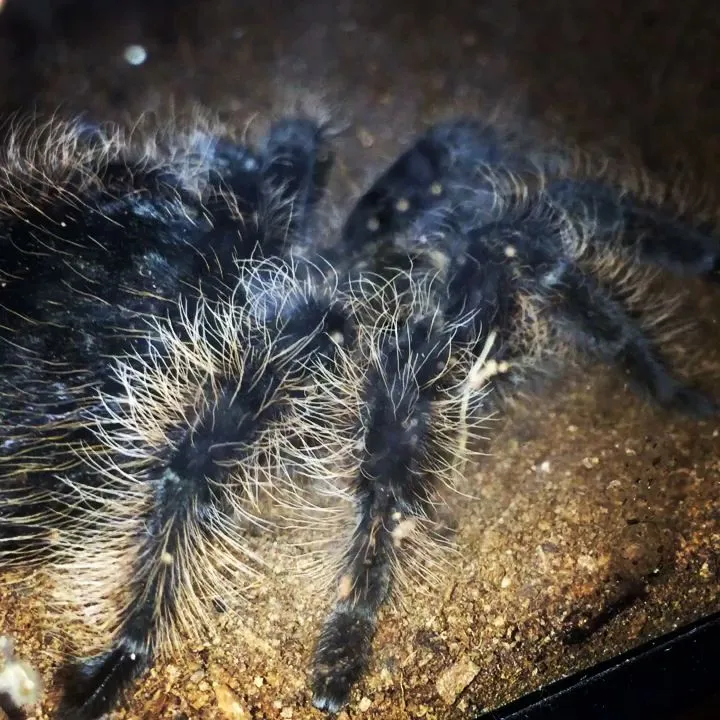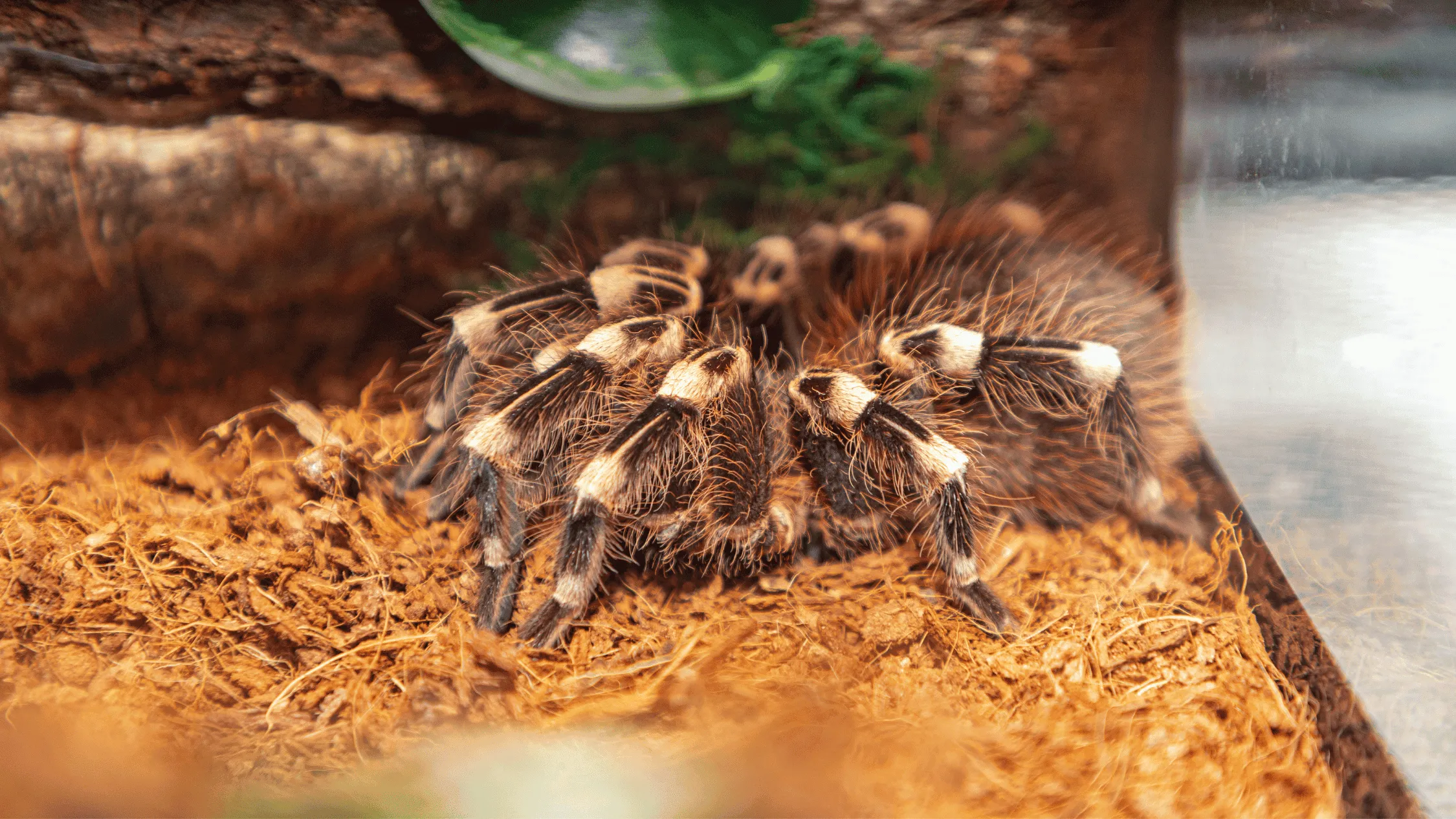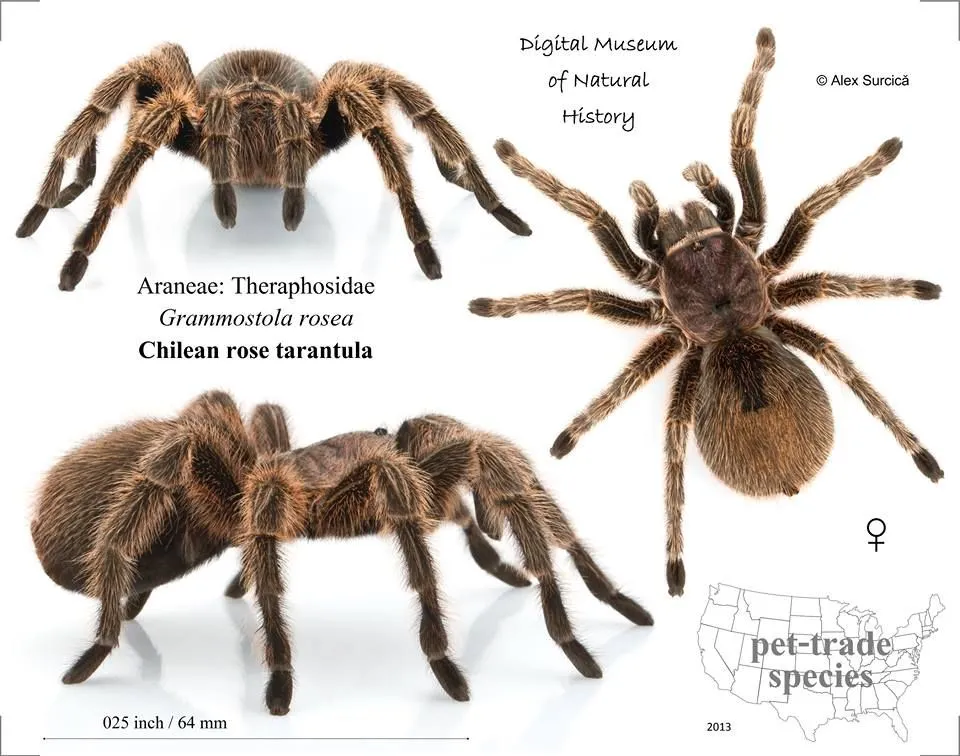Why Choose a Tarantula? Amazing Benefits
Considering a pet is a big decision, and if you’re looking for something unique, a tarantula might be the perfect fit. These fascinating arachnids offer several advantages over traditional pets, making them appealing to a wide range of people. From their low-maintenance needs to their captivating behaviors, tarantulas can provide a rewarding experience for owners. They are relatively easy to care for, making them an excellent choice for beginners or those with busy lifestyles. Moreover, tarantulas are quiet and don’t require constant attention, providing a sense of calm and a unique connection with nature. This article will delve into the top 5 amazing benefits of owning a tarantula, helping you decide if this exotic pet is right for you.
Low Maintenance Companionship
One of the biggest advantages of owning a tarantula is their low-maintenance nature. Unlike dogs or cats that require daily walks, playtime, and grooming, tarantulas are relatively self-sufficient. Their care primarily involves providing a suitable habitat, regular feeding, and ensuring access to fresh water. This makes them ideal for people with busy schedules or those who travel frequently. You don’t have to worry about taking them out for walks or dealing with constant demands for attention. The simplicity of their care routine allows you to enjoy their presence without a significant time commitment. This independence makes them a great choice for those who desire the company of a pet without the intensive responsibilities that often come with it. The key is setting up their enclosure properly and providing food and water at the recommended intervals.
Minimal Daily Care Required

Tarantulas demand very little of your time on a daily basis. Their primary needs include feeding once or twice a week, misting their enclosure to maintain humidity levels (depending on the species), and removing any uneaten food or molted exoskeletons. This quick and easy routine fits well into a busy lifestyle. Unlike other pets that require daily exercise, training, and interaction, tarantulas are content in their enclosures. You can easily incorporate their care into your existing schedule without feeling overwhelmed. This low-demand care makes them a practical option for those who are new to pet ownership or looking for a pet that doesn’t require constant attention. It allows you to enjoy the unique experience of owning a pet without the same level of daily commitment as more traditional companions.
Independent & Quiet Pets
If you value a calm and quiet home environment, a tarantula could be perfect for you. They are not noisy pets, unlike dogs that bark or cats that meow. Tarantulas remain in their enclosures, allowing for a peaceful atmosphere. Their quiet nature is a significant advantage for those living in apartments or shared housing situations where noise levels are a concern. They provide a sense of companionship without disrupting the peace of your living space. This independence means you can enjoy their presence without the constant need for interaction or attention. Their reserved behavior doesn’t mean they are not fascinating; it simply means their form of companionship comes in a different, more serene package. This can be a significant benefit for individuals who may not be able to dedicate a large amount of their time to their pet.
Fascinating to Observe
Tarantulas are incredibly fascinating creatures to observe. Their behaviors, such as hunting, molting, and web-spinning, are truly captivating. Watching them in their natural habitat can be a source of endless entertainment and intrigue. Each tarantula species has its own unique characteristics and habits, adding to the diversity of their appeal. Whether you are a seasoned pet owner or a curious beginner, observing a tarantula can be a mesmerizing experience. The beauty of their colors, the elegance of their movements, and the intricate details of their exoskeletons all contribute to their captivating nature. You’ll often find yourself losing track of time as you watch them go about their daily routines. The opportunity to learn about these animals is one of the most rewarding aspects of tarantula ownership.
Educational Value of Tarantula Pets

Owning a tarantula is a fantastic way to learn about arachnids, their life cycles, and the intricate world of invertebrates. This can be especially valuable for children, fostering a sense of curiosity and a deeper understanding of the natural world. Learning about tarantulas opens the door to broader scientific exploration. You can delve into the fascinating field of entomology, which includes the study of insects and related arthropods. This educational opportunity extends beyond the classroom, as you can conduct your own research, observe their behavior, and learn about their habitats. The responsibilities of caring for a tarantula also instill a sense of respect for all living creatures and can spark an interest in conservation and biodiversity. This offers a unique chance to expand knowledge and understanding in an engaging and hands-on way.
Teaching Responsibility and Patience
Caring for a tarantula can teach both children and adults valuable lessons about responsibility and patience. Unlike some pets that demand constant attention, tarantulas require consistent care, which fosters a sense of duty and commitment. Providing fresh water, food, and maintaining their habitat teaches the importance of routine and the impact of actions on another living being. Moreover, observing a tarantula requires patience; their behaviors can be slow-paced, and the rewards come with time. Learning to appreciate the small things, like the intricacies of a molt or the precision of a hunt, can be a powerful way to build character. The experience of caring for a tarantula instills a deeper sense of empathy and a connection to the natural world, fostering responsible behavior and the ability to appreciate the world around them.
Learning about Arachnids
Owning a tarantula provides an amazing opportunity to learn about arachnids, their unique characteristics, and their place in the ecosystem. You’ll gain insights into their anatomy, their diverse species, and the environments they inhabit. You’ll become familiar with terms like chelicerae, spinnerets, and carapace, and you’ll have a deeper understanding of their behavior, such as how they hunt, molt, and reproduce. This learning journey extends beyond the surface, allowing you to explore the complexities of the spider world. You can learn about their roles in controlling insect populations, their venom, and the various habitats where they thrive. You can also compare and contrast different tarantula species, each with their own distinct traits and requirements. This in-depth learning experience can be incredibly rewarding for anyone interested in the natural world.
Space-Saving Pets

If you live in a small apartment or have limited space, a tarantula is an excellent choice. They don’t require large enclosures, making them ideal for those with space constraints. Their habitats can be easily accommodated in smaller living spaces, allowing you to enjoy the benefits of pet ownership without taking up a lot of room. The compact nature of their enclosures ensures that your living space remains uncluttered and manageable. You can easily place their habitat on a shelf, desk, or any other small surface, fitting seamlessly into your home décor. This space-saving aspect is a major advantage, especially for urban dwellers or anyone with limited living space. They make a great choice for anyone who wants a pet without the added burden of having to make a lot of space.
Suitable for Small Living Spaces
Their habitat, the terrarium, is generally compact and easily fits into most living environments. Unlike dogs or cats that need space to roam, tarantulas thrive in a contained setting, eliminating the need for large yards or dedicated rooms. The compact nature of their enclosures makes them perfect for apartments, studios, and smaller homes. You can even keep multiple tarantulas without overcrowding your space, provided each has its own separate, appropriate habitat. Their ability to adapt to small spaces is a major benefit for those with limited living areas or shared housing situations. Owning a tarantula means enjoying the companionship of a pet without sacrificing valuable living space.
Affordable Pets
Compared to many other pets, tarantulas can be a budget-friendly option. Their initial cost, as well as their ongoing care expenses, is relatively low. This makes them accessible to a wide range of people, including students, young professionals, and families who are mindful of their budget. The initial investment typically covers the cost of the tarantula itself, a suitable enclosure, substrate, and basic supplies. Their care requirements are inexpensive, primarily consisting of food (insects), water, and occasional substrate changes. This cost-effectiveness makes them an attractive option for those looking for a unique pet without breaking the bank. The financial considerations often make tarantulas a more approachable and sustainable pet choice.
Initial Setup Cost Considerations

The initial setup cost for a tarantula typically includes the cost of the tarantula, its enclosure, substrate, water dish, and possibly some decorative elements. While the price varies depending on the species and size of the tarantula, the overall cost is generally more manageable than that of other pets. Setting up their environment is usually a one-time expense, making it relatively predictable and manageable. You can often find budget-friendly options for enclosures and substrates without compromising on the quality of care. The key is to research the specific needs of your chosen tarantula species and make informed purchasing decisions. You will find that the upfront investment is smaller than with many other pets, making them an attractive option for those looking to start their pet-owning journey.
Ongoing Care Costs
The ongoing care costs for a tarantula are minimal compared to most other pets. The primary expenses include food (usually insects like crickets or mealworms), substrate replacement, and occasional supplies. These costs are significantly lower than those associated with veterinary visits, grooming, or specialized diets required by other animals. The simplicity of their care routine translates into a lower financial burden. The main requirement is a consistent supply of food and the occasional need to replenish or replace the substrate. This cost-effectiveness makes tarantulas a great choice for anyone who is on a budget and wants to enjoy the benefits of pet ownership without straining their finances. The ability to anticipate and manage their ongoing expenses is a huge plus.
